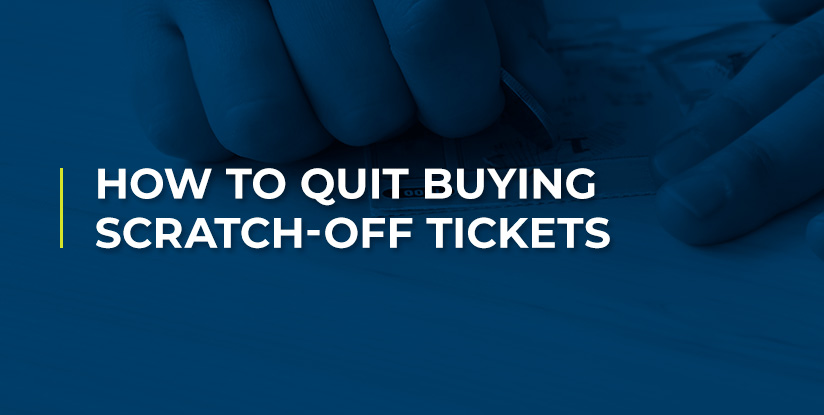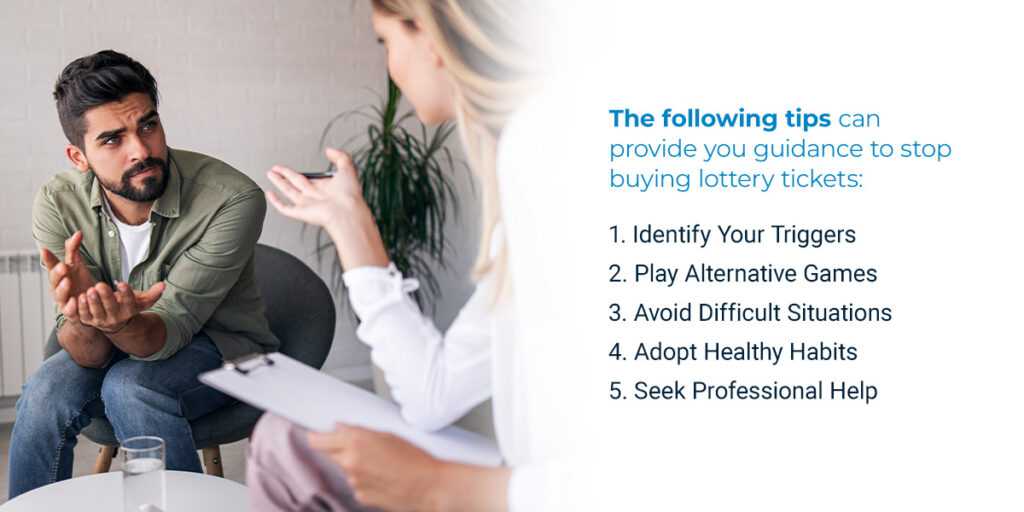- Mar 15
- Treatment

Almost everyone is familiar with lottery tickets, especially scratch-offs. Even if you’ve never bought scratch-off lottery tickets, you likely know what they look like and what the process entails. For some people, scratch-offs are an occasional way to test their luck. However, scratch-offs can become a significant problem for someone with a gambling disorder.
Gambling for entertainment can become an obsession or a compulsion, and a person with a gambling addiction may spend more than they can afford to try to win the jackpot with scratch-off tickets. People can develop a scratch-off addiction, becoming a gateway to riskier activities or decision-making.
Are Lottery Scratch-Offs Bad?
For most people, lottery tickets are harmless fun they occasionally engage in once in a while. However, people with a lottery addiction see scratch-offs as more than a game. These tickets have become their obsession, and they chase the high of a big win. People with a gambling addiction can quickly spend hundreds on scratch-off tickets, leaving individuals in a financial catastrophe and causing significant tension in their personal and professional lives.
The value of a scratch-off ticket can play a role in the intensity of a person’s gambling addiction. For example, a person may start with the $1 ticket, similar to a quick puff for a smoker. As the addiction worsens, a person with a gambling disorder may buy tickets with more value, such as those worth $10 or $20, indicating a person is getting riskier with their money and decision-making.
Scratch-offs can be an adverse pathway for someone with a gambling addiction. While they may start with one ticket of small value, they start buying more tickets with varying discounts until they purchase numerous high-value tickets at frequent intervals, resulting in various negative consequences.
How to Quit Scratch-Off Tickets
Once a gambling addiction negatively impacts your life, it’s time to put your foot down and find a way to stop buying lottery tickets. Quitting can free you from your addiction and improve your quality of life. While it can be challenging once an addiction has taken over, the following tips can provide you guidance to stop buying lottery tickets:

1. Identify Your Triggers
Most people who struggle with a gambling addiction have triggers that make them feel compelled to participate in gambling activities. Since addiction can happen to anyone, your triggers may look different to someone else with a gambling disorder. There are some common triggers that most people with a gambling addiction experience, which can include:
- Personal, professional, or financial stress
- Easy access to gambling
- Feelings of boredom or loneliness
- Untreated mental health conditions
- Environments that remind you of gambling
- Friends or family members that participate in gambling
Identifying your triggers makes it easier to find effective coping mechanisms, whether juggling numerous challenging situations or dealing with uncomfortable mental health symptoms that cause you to turn to gambling.
2. Play Alternative Games
It’s hard to avoid games, especially in the emerging digital landscape where gambling and scratch-off games are available at your fingertips. You don’t need to stop gaming forever if you want to quit scratch-offs or have a gambling addiction — but you should avoid games involving taking chances, betting money, or taking risks. Playing these games can lead to relapse, even if the currency in the game is fake.
Instead, find games that make you happy but don’t involve any gambling or betting elements. For example, you can try playing:
- Roleplaying games
- Multiplayer games
- Puzzles
- Simulators
- Action-adventure games
- Strategy games
Many games are free or require a one-time purchase to access all the content. They are excellent alternatives for those who enjoy gaming but don’t want to be involved in gambling.
3. Avoid Difficult Situations
People who struggle with a gambling addiction may find it hard to say no, especially when presented with an opportunity to gamble. Rather than put yourself in these situations — such as attending gambling-themed parties or spending time with people who still gamble — you can avoid these situations to reduce the urge. If you feel like a situation will cause temptation and you’ll find it difficult to walk away, find an alternative activity, such as spending time with supportive friends or attending a support group meeting.
4. Adopt Healthy Habits
Replacing gambling with healthy habits can help improve your emotional state and alleviate boredom that may contribute to your urge to purchase lottery tickets. Try new hobbies that interest you, such as:
- Sports and fitness activities
- Yoga
- Art, like painting or sketching
- Hiking
- Cooking or baking classes
- Pottery
- Reading or journaling
- Dancing classes
- DIY projects
- Gardening
Healthy hobbies and habits can help you handle challenging emotions or feelings that make you feel compelled to gamble. You can also participate in these activities with loved ones who can hold you accountable and support you throughout your recovery.
5. Seek Professional Help
Gambling addiction is complicated, and you may find it challenging to quit on your own without the right tools. An addiction specialist has the training and knowledge to help you identify the root cause of your scratch-off addiction, such as co-occurring mental health conditions. Professional treatment focuses on treating the entirety of your situation rather than just gambling to encourage full recovery.
An addiction specialist can recommend different therapies, including:
You’ll develop effective strategies and tools during your sessions to manage your temptation to use scratch-off tickets, helping you heal and improve your quality of life. You may also participate in group therapy or 12-step programs to help hold you accountable while connecting you with others who share similar stories. You can learn vital information from others in different stages of recovery and incorporate this knowledge into your recovery plan.
Seek Help for Your Gambling Addiction With Gateway Foundation
Gambling addiction affects everyone differently, but the one commonality it shares is the toll it can take on your life. People who struggle with a scratch-off or gambling addiction can experience mental, financial, and emotional hardship, which is why Gateway Foundation is here to help. Our specialists will help you identify the best treatment program for your addiction, teach you coping mechanisms and treat underlying conditions.
We’ll create a personalized treatment plan — whether you need inpatient or outpatient care — so you can get the best care possible. Contact a representative today to learn more about our programs and how we can help.



